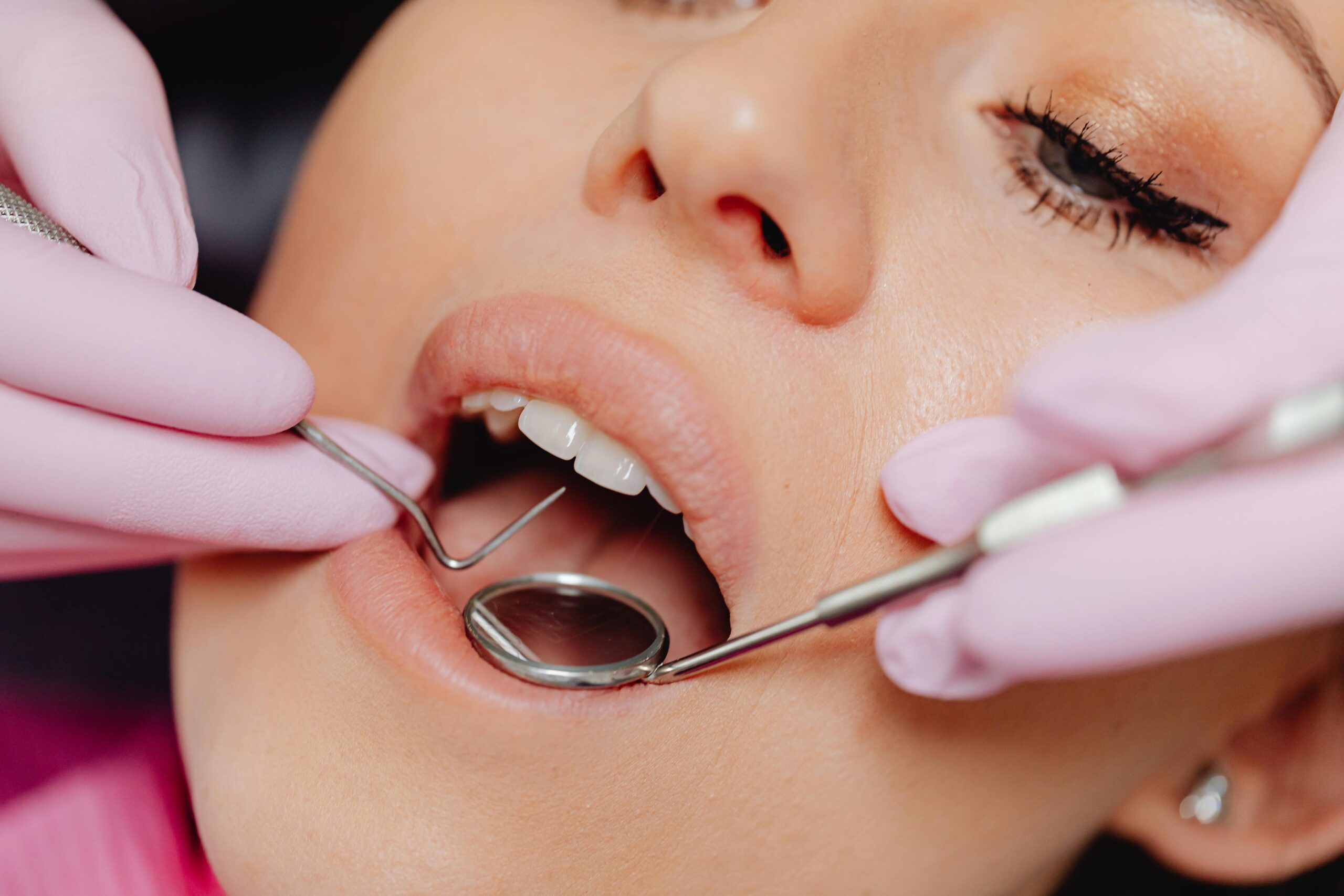For Sandgate residents, plaque buildup isn’t just about yellow teeth—it’s the #1 cause of cavities and gum disease. Here’s what your dentist wants you to know. Plaque buildup is a common health concern. It affects both our oral and cardiovascular health.
But what exactly is plaque buildup?
This article aims to answer that question. It will delve into the causes and effects of plaque buildup.
We will explore how to check for and clean plaque. We will also discuss strategies for preventing plaque buildup.
By understanding plaque, we can take proactive steps. We can maintain our oral health and reduce the risk of heart disease.
Let’s start our journey towards better health.
What Is Plaque Buildup?
Plaque buildup is a common problem affecting millions. It’s a sticky film that clings to surfaces. We often think of it in the context of teeth.
On teeth, plaque is formed by bacteria, food particles, and saliva. It feels slimy and is typically clear. If not removed, it can lead to oral health issues.
Plaque formation is a natural process. It starts forming right after we eat or drink. Bacteria feast on sugars and starches, producing acids.
These acids pose a threat to enamel. Over time, they can cause cavities and gum disease. Plaque isn’t only a dental issue.
Plaque can also build up in arteries. This type is different and includes cholesterol and fat deposits. It can lead to severe health complications.
Understanding the nature of plaque is crucial. It helps us manage its effects on our health. By doing so, we can enjoy better oral and cardiovascular well-being.
The Composition of Plaque
Plaque is mostly composed of bacteria. These bacteria thrive in a moist environment, especially in the mouth. Along with bacteria, food particles and saliva contribute to plaque.
The combination allows bacteria to multiply. The sticky nature of plaque helps bacteria cling to surfaces. This provides a constant threat to dental health.
Dental Plaque vs. Arterial Plaque
Dental plaque and arterial plaque are often confused. It’s important to distinguish between them. They affect our health in different ways.
Dental Plaque:
- Sticky film on teeth
- Composed of bacteria, food, and saliva
- Causes tooth decay and gum disease
Arterial Plaque:
- Found in blood vessels
- Contains fats, cholesterol, and calcium
- Leads to blockages and heart issues
Dental plaque is best known for leading to cavities. The acids from plaque bacteria erode enamel. This can result in painful tooth decay and gum problems.
Brushing and flossing effectively combat dental plaque.
How Plaque Forms in Your Mouth (Sandgate Dentist Explains)
Plaque buildup occurs due to a mix of factors. Both lifestyle choices and biological processes can contribute significantly. Understanding these causes is vital for prevention.
Diet plays a crucial role in plaque formation. Sugary and starchy foods are the main culprits. When consumed, these foods provide a feast for bacteria.
Poor oral hygiene is another significant factor. Inadequate brushing and flossing leave food particles behind. This creates a favourable environment for bacteria to thrive.
Smoking and other lifestyle habits worsen plaque issues. Tobacco users often see faster plaque development. This can lead to more severe oral health issues.
Genetic predisposition can also influence plaque buildup. Some individuals are more susceptible than others. This highlights the need for personalised care strategies.
Stress levels can affect overall health, including plaque formation. High stress can alter saliva production, enhancing plaque risk. Addressing stress positively impacts both oral and cardiovascular health.
Diet and Plaque Formation
Diet is a critical factor in plaque development. Sugary snacks and drinks are particularly harmful. They serve as food for plaque-causing bacteria.
Bacteria break down these sugars and create acids. These acids attack tooth enamel, leading to decay. Over time, untreated decay can worsen, affecting overall oral health.
A balanced diet reduces plaque risks. Consuming fresh fruits, vegetables, and whole grains helps. These foods support oral health and lessen bacterial growth.
Lifestyle Factors Contributing to Plaque
Lifestyle choices have a direct impact on plaque levels. Smoking is a major contributor. It accelerates the accumulation of plaque and tartar.
Alcohol consumption also affects plaque buildup. It alters oral bacteria balance, leading to increased plaque. Limiting alcohol intake can help maintain better oral health.
Systemic Diseases and Plaque Accumulation
Certain systemic diseases increase plaque vulnerability. Diabetes, for example, heightens the risk of gum disease. This is due to the body’s reduced ability to fight infections.
Dry mouth, a common issue among older adults, also impacts plaque. Less saliva means a higher risk for plaque formation. Saliva naturally helps in cleaning the teeth.
Medications for various conditions can lead to plaque buildup. Some medicines reduce saliva production or alter its composition. Being mindful of side effects and consulting healthcare professionals is key.
Effects of Plaque on Health
Plaque can have detrimental effects on both oral and overall health. If not addressed, it can lead to severe complications. Understanding these effects is crucial for proactive health management.
Oral health is significantly affected by plaque buildup. It can lead to tooth decay, gum disease, and eventual tooth loss. These conditions not only impact the mouth but also overall wellbeing.
The mouth-body connection underscores how plaque impacts the heart. Studies suggest links between oral plaque and heart disease. Bacteria from the mouth can enter the bloodstream, affecting arteries.
Plaque contributes to gum inflammation and bleeding. Over time, this inflammation can become chronic. Chronic inflammation is linked to various systemic health issues.
Combating the adverse effects of plaque involves diligent oral hygiene. Regular checkups and cleanings prevent serious health challenges. Awareness of plaque’s impact encourages better health choices.
Plaque and Oral Health Issues
Dental plaque is a precursor to many oral health issues. It provides a breeding ground for harmful bacteria. These bacteria cause cavities and gum disease.
As plaque accumulates, it hardens into tartar. This makes teeth cleaning more difficult and requires professional intervention. Tartar can irritate gums, leading to gingivitis.
Untreated gingivitis can progress to periodontitis. This severe gum infection damages soft tissue and bone. Consistent oral care is vital to avoid these conditions.
Plaque and Cardiovascular Diseases
The link between oral plaque and cardiovascular health is significant. Research indicates that plaque can contribute to heart issues. It involves bacteria traveling from the mouth to the bloodstream.
Oral bacteria can inflame blood vessels and increase heart attack risk. This highlights the need to prioritise oral hygiene to protect the heart.
Checking and Cleaning Plaque Buildup
Regularly checking for plaque is an essential routine. It helps in identifying buildup early. This allows for timely interventions that prevent complications.
Cleaning plaque effectively requires consistency and the right tools. Daily brushing and flossing are foundational practices. They help in removing plaque and maintaining oral hygiene.
Visits to the dentist are critical for plaque management. Dentists can spot areas you might miss. Professional cleaning ensures plaque and tartar are kept at bay.
At-Home Plaque Detection Techniques
Detecting plaque at home is quite feasible with simple methods. Use of plaque-disclosing tablets can highlight areas with plaque. These make it easier to address specific spots during cleaning.
Staying observant of any changes in your mouth can help. Sensitivity, redness, or bad breath may signal plaque issues. Responding quickly to these signs ensures better oral health.
Professional Dental Cleaning and Assessment
Professional dental cleanings are vital in plaque control. These sessions remove plaque that at-home care might miss. Dental hygienists use specialised tools to clean teeth thoroughly.
During these visits, dentists assess oral health. They look for signs of plaque-related issues. Early detection can prevent serious conditions.
After cleaning, professionals provide personalised advice. Recommendations can include specific products or techniques. This empowers individuals to maintain a plaque-free mouth at home.
Preventing Plaque Buildup
Preventing plaque buildup involves a commitment to good oral hygiene. Consistency is crucial in maintaining healthy teeth and gums. Adopting effective techniques is key to reducing plaque formation.
Daily habits can significantly impact plaque levels. Regular brushing and flossing create a strong defence against plaque. It’s important to use the right techniques for maximum effectiveness.
Diet plays a vital role in preventing plaque. Foods high in sugars and starches can contribute to plaque. Choosing a diet low in these foods helps protect your teeth.
Lifestyle changes also contribute to plaque prevention. Smoking and excessive alcohol consumption can increase plaque risk. Reducing or eliminating these habits supports oral health.
Professional guidance enhances plaque prevention strategies. Dentists and hygienists provide personalised advice. Their recommendations are tailored to individual needs.
Staying proactive is essential. Regular dental visits ensure early detection and management. This holistic approach helps maintain a plaque-free mouth.
Brushing and Flossing Techniques
Effective brushing removes plaque from teeth surfaces. Use a soft-bristled toothbrush and fluoride toothpaste. Brushing twice a day, especially before bedtime, is advised.
Proper technique matters significantly. Brush in gentle, circular motions for at least two minutes. Be sure to cover all surfaces, including the tongue.
Flossing complements brushing by cleaning between teeth. Daily flossing removes plaque from areas brushing cannot reach. It’s a critical step in preventing plaque accumulation.
The Role of Diet in Preventing Plaque
Dietary choices impact plaque formation immensely. Sugary and starchy foods fuel plaque-causing bacteria. Limiting these foods is beneficial.
Focus on a balanced diet rich in fruits and vegetables. These foods naturally cleanse the mouth. They also stimulate saliva production, aiding in plaque control.
Choosing snacks wisely is equally important. Opt for cheese or nuts over sugary treats. These choices support a healthier oral environment.
The Importance of Plaque Management
Plaque management is essential for overall health. Neglecting it can lead to severe oral and cardiovascular issues. Educating yourself about plaque is the first step toward prevention.
Simple daily habits can make a significant difference. Regular brushing and flossing remain fundamental. Professional dental checkups ensure that plaque does not go unnoticed.
Lifestyle choices, including diet and stress management, contribute to plaque control. Awareness and proactive measures enhance both oral and heart health. Taking action now prevents complications later.
Empowering Patients for Better Oral and Cardiovascular Health
Education empowers individuals to make informed health choices. By understanding plaque, you can tailor your habits for better results. It’s all about informed daily actions.
Implementing small changes can yield significant health improvements. Focus on consistent, manageable steps in your routine. Your health benefits from each positive change.








